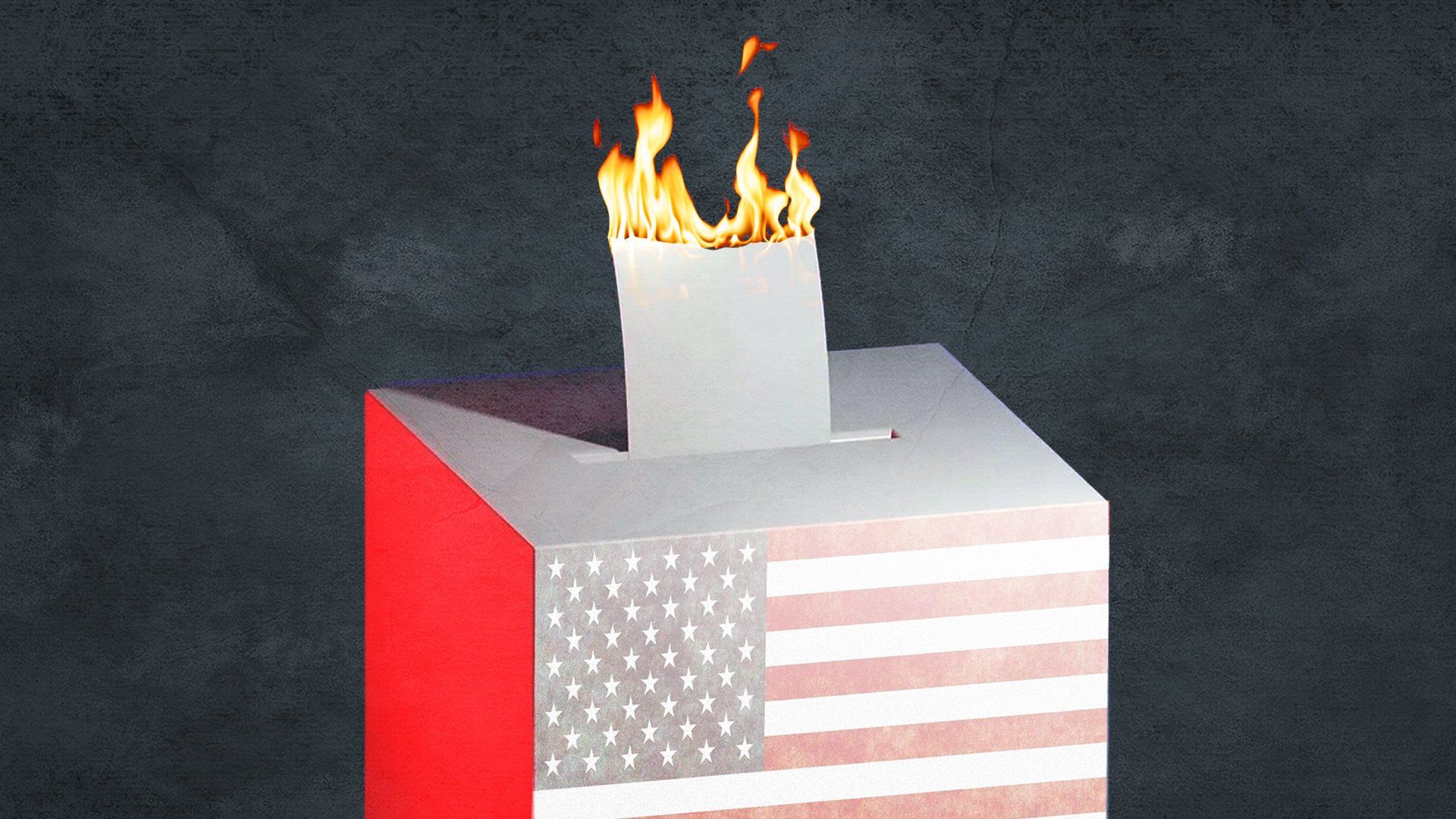October 31, 2024
Donald Trump’s big Madison Square Garden rally on Sunday made news because of the racist wisecracks of an opening act, but jumpy Democrats seized on an off-the-cuff remark.
“I think with our little secret we are gonna do really well with the House,” Trump said, gesturing to House Speaker Mike Johnson. “Our little secret is having a big impact. He and I have a little secret. We will tell you what it is when the race is over.”
Democrats are so rattled by the prospect of Republicans trying to game the system on Election Night that they decided Trump was hinting at a secret plan to overturn the election.
On CNN, Democratic Congressman Dan Goldmanwarned of a plot to decide the election results in a House vote.
“I suspect … Donald Trump’s little secret plan with Mike Johnson is a backup plan for when he loses and he tries to go to the House of Representatives to throw out the Electoral College … and try to overturn this election.”
By hook or by crook
Johnson said later that Trump was talking about their get-out-the-vote plans, which makes sense in the context. But Democrats are concerned that Trump and his allies have a secret plan to try to take power, perhaps by forcing a vote in the House.
But it does not look easy. The contingent election is designed for situations where nobody wins a majority of Electoral College votes. The last time that happened was in 1824, when there were four presidential candidates. That should not happen next week, since no other candidates are on the ballot, but Trump is expected to try to get Republican legislatures to send alternative slates of electors in states he loses, setting up a situation where Congress could choose which electors to pick. Theoretically, Johnson could hold a special vote in the House of Representatives and make Trump president.
Trump likely does want to do that, says Richard Hasen, director of the Safeguarding Democracy Project at UCLA Law School.
“I imagine he will be trying to find ways to get to a contingent election in the House — maybe that’s the little secret — but with our existing rules, that would be very hard to do as it would require finding a way to assure that Harris would not have a majority in each house,” he said.
Nervous about the Supreme Court
It looks highly unlikely, in part because it would require the cooperation of many Republicans who would be reluctant to overturn clear results from voters. And the Electoral Count Reform Act, which was passed with bipartisan support, tightened the rules around certification. Trump is more likely to try to flip a close state in the courts by challenging some contested ballots, as happened in 2000, when George W. Bush prevailed over Al Gore after the Supreme Court ruled that Bush had won Florida’s Electoral College votes.
“If the race is as tight as it was in 2000, like Bush v. Gore tight, then there will likely be a recount in a state that matters, and issues may get litigated all the way to the Supreme Court,” says Hasen.
“The 2020 election was not close like 2000. It was over 10,000 ballots difference, and multiple states mattered. If that’s what we see, and Trump loses, then I expect Trump will try litigation and political strategies to try to change the results to his favor.”
There are 115 voting lawsuits open at various courts. If the Republicans can find a cause to get to the Supreme Court, they might hope that the 6-3 Republican majority of justices will rule in their favor. The court surprised observers by ruling in Trump’s favor in the presidential immunity case, and on Wednesday, the court approved a controversial Republican purge of voters, so Democrats are nervous about what might happen if Trump manages to get a case to the court.
Drop boxes firebombed
The polls could not be closer, and both sides will have armies of lawyers standing by on election night to try to seek advantage.
“Although recounts very rarely change the election outcome, and the courts have consistently rebuffed such shenanigans from the Trump team in the past, these lawsuits will be headline-grabbing events and will perpetuate uncertainty,” says Natasha Gaither, a researcher at Eurasia Group.
Even if Trump’s lawyers do not prevail, that uncertainty could lead to violence.
“We are likely to witness sporadic clashes between law enforcement and extremist partisans on either side of the aisle as long as certification of the results is deferred by legal fights,” says Gaither.
Election night will be tense, with angry partisans gathering outside counting places as mail-in and absentee ballots are tabulated.
Trump keeps telling his supporters — without evidence — that the election could be stolen by cheating Democrats, and they believe him. Ballot drop boxes were firebombed on Monday, for example. More than 7 in 10 Americans are worried about election-related violence.
It would be nice to tell them they needn’t worry, but they are right to do so.
More For You
Most Popular
Think you know what's going on around the world? Here's your chance to prove it.
Xi Jinping has spent three years gutting his own military leadership. Five of the seven members of the Central Military Commission – China's supreme military authority – have been purged since 2023, all of whom were handpicked by Xi himself back in 2022.
From a resilient but divided consumer economy to cooling small business hiring, tighter housing affordability, and AI’s shift from buzzword to economic engine, 2025 revealed a “K-shaped” recovery and rapid technological transformation. Bank of America Institute’s 2025 Year in Review distills the data behind the year’s defining trends. Explore the 2025 Year in Review from Bank of America Institute.
© 2025 GZERO Media. All Rights Reserved | A Eurasia Group media company.
